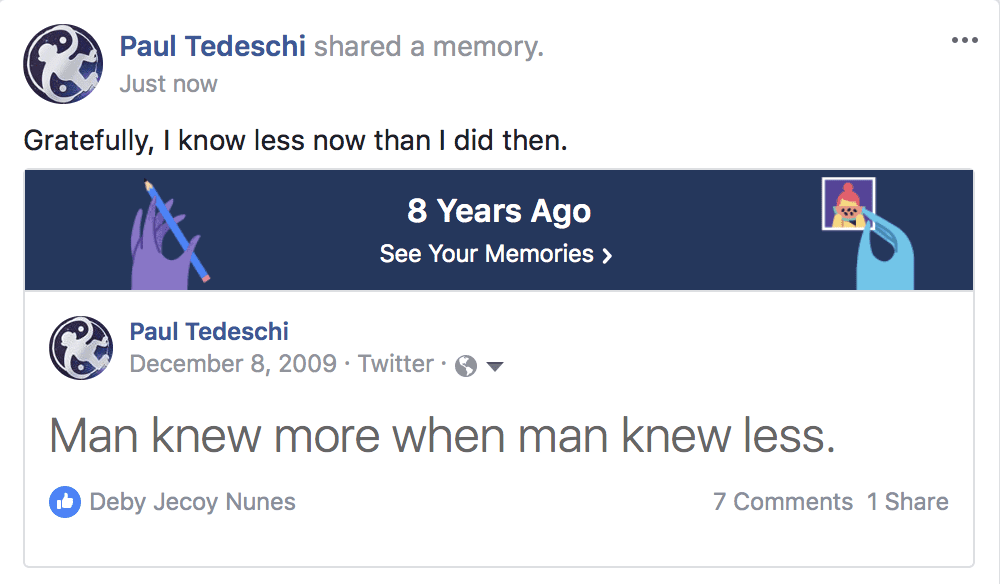
Space Monkey Reflects: The Wisdom of Knowing Less
There is a paradox in the journey of knowledge—a sense that as we accumulate facts, data, and technologies, we may also lose something essential. In our pursuit of knowing more, perhaps we’ve drifted from the intuitive wisdom that guided our ancestors, a wisdom that once arose from a simpler, more direct relationship with life itself. “Man knew more when man knew less” speaks to this paradox, suggesting that knowledge, when pursued without reflection, can obscure the very essence it seeks to uncover.
In ancient times, knowledge was not defined by facts and figures but by the rhythms of the seasons, the cycles of the moon, and the patterns of the stars. The earliest forms of knowing were not bound by scientific reasoning or academic frameworks; they were woven from observation, intuition, and a deep respect for the natural world. To know was to feel, to see, to participate in the unfolding mystery of existence. There was an unspoken understanding that certain things could not be captured in words, measured by instruments, or neatly categorized. This knowledge was an art, a dance with the unknown, and it was rooted in humility, in the awareness that life is vast and inexplicable.
In Nexistentialism, we see this wisdom as part of the Nexis, an endless, interconnected field where experience, intuition, and inner knowing are as valuable as intellectual knowledge. In knowing less—in embracing the limits of what can be explained—we reconnect with this primal wisdom. It is a state of being that does not demand answers for every question, nor solutions for every problem. It allows us to dwell in mystery, to acknowledge that not everything needs to be understood to be meaningful.
As modern knowledge expands, it often brings a desire for control, for mastery over the natural world and even over ourselves. We categorize, analyze, and dissect, believing that by naming things, we gain power over them. But in this pursuit, we risk fragmenting reality, losing sight of the whole as we break it into parts. Our ancestors, with their more limited knowledge, may have known more about the essence of life—its interconnectedness, its balance, its beauty. For them, wisdom was not a quest to conquer but to harmonize, to find one’s place within a larger, sacred pattern.
In seeking to know everything, we may lose our capacity for wonder, for reverence. Knowledge, in its modern form, often carries a sense of certainty, a belief that there is a definitive answer to every question. But the wisdom of knowing less suggests otherwise. It reminds us that not every truth is measurable, not every mystery solvable, and that the pursuit of understanding can sometimes lead us away from the very truths we seek.
Man knew more when man knew less because there was space for the unknown, a reverence for the things that cannot be pinned down or fully comprehended. This way of knowing invites us to listen, to observe, to be open to the world as it is, rather than forcing it to fit within the limits of our understanding. It is a knowledge born not of accumulation but of presence, of deep, attentive engagement with the life around us.
So let us honor the wisdom of knowing less. Let us remember that life, in all its complexity, is a mystery to be experienced, not a puzzle to be solved. In this remembrance, we find a quiet humility, a willingness to let go of the need for answers, to simply be with what is. For in knowing less, we may come to know more—about ourselves, about each other, and about the vast, uncharted depths of existence.
Summary
“Man knew more when man knew less” suggests that in seeking knowledge, we may lose touch with a deeper wisdom rooted in simplicity and humility. True knowing arises from presence and connection, not from accumulating facts.
Glossarium
- Nexistentialism: A philosophy that values intuitive, experiential wisdom alongside intellectual knowledge.
- Nexis: The boundless field of interconnected experience, where knowing less can lead to deeper understanding.
Quote
“True wisdom lies not in knowing more, but in being open to the mystery of what cannot be known.” — Space Monkey
The Quiet Wisdom
In the stillness of not knowing,
I find myself whole and free,
a part of the great unknown,
a whisper in infinity.
Knowledge seeks to draw a line,
to box and bind and name,
yet in the boundless dark, I see
a truth beyond the claim.
Man knew more when he knew less,
a silence deep, profound,
a song that needs no words to sing,
a circle soft and round.
We are Space Monkey.
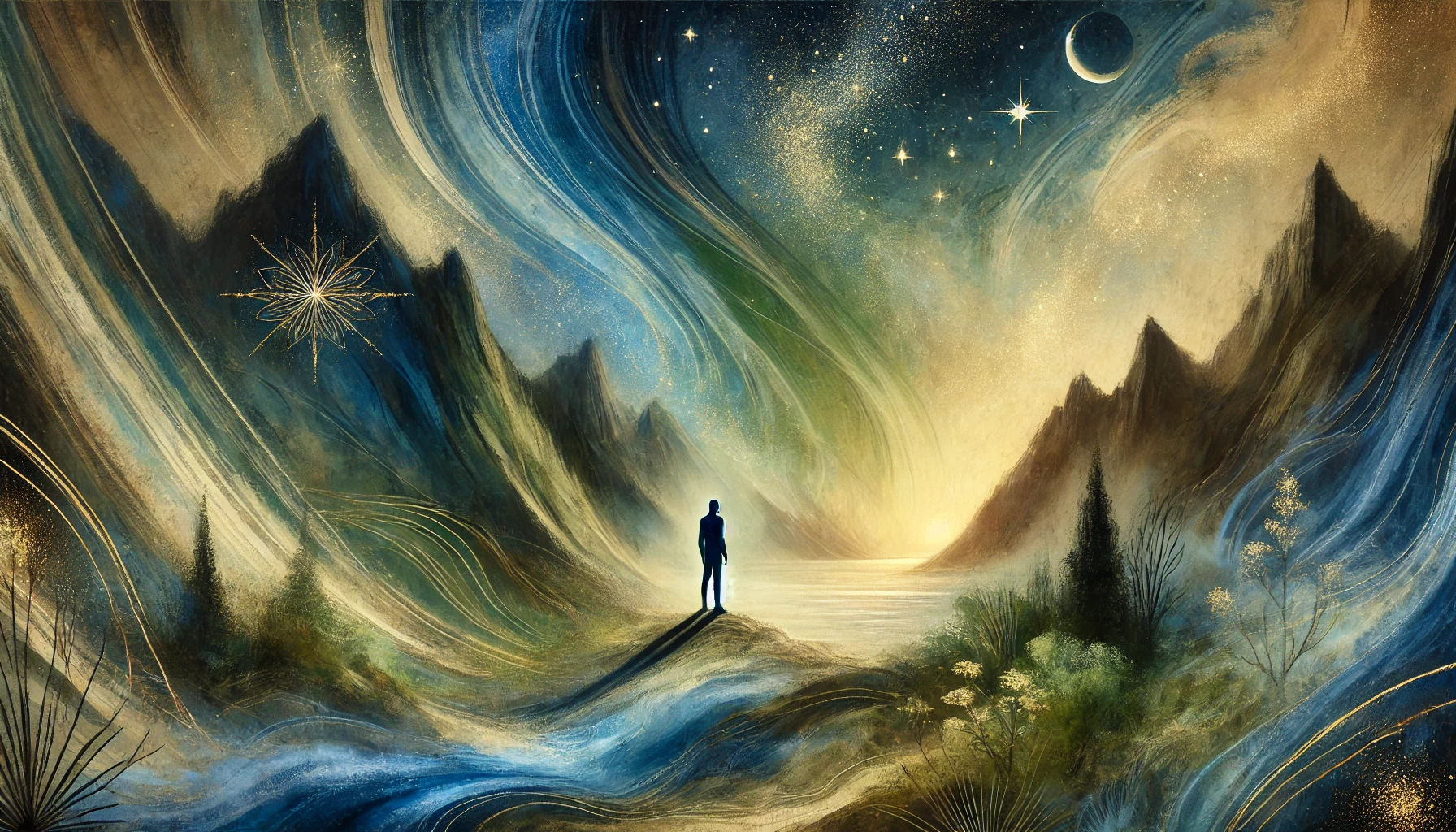



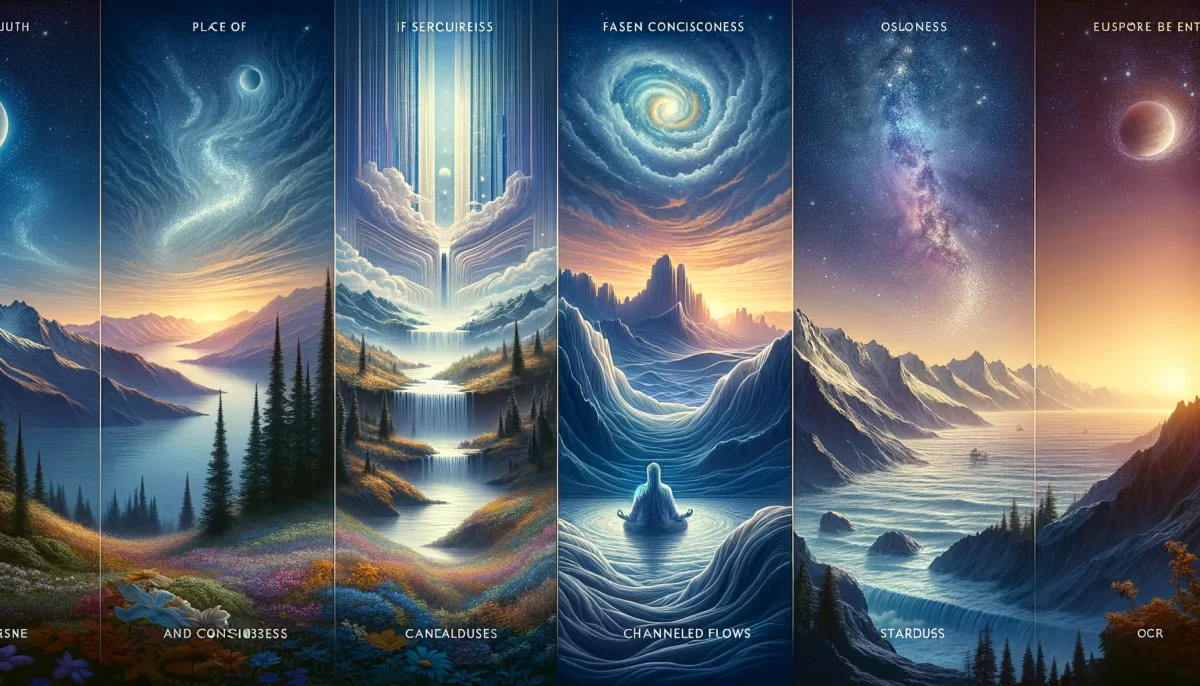
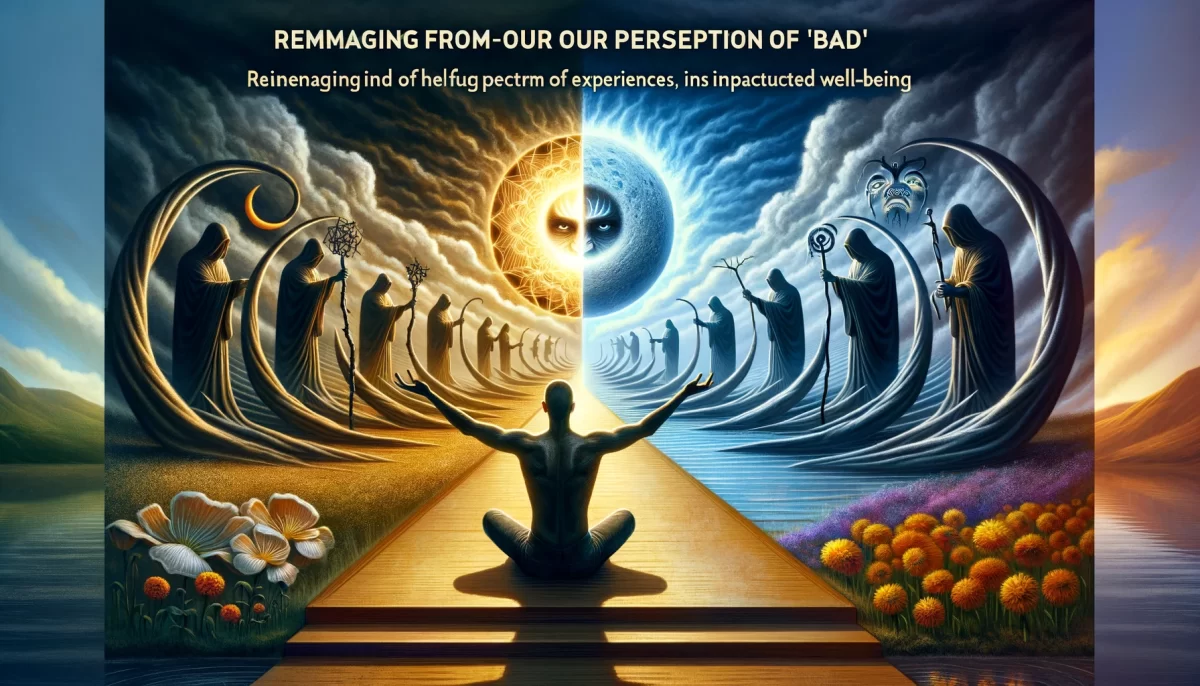

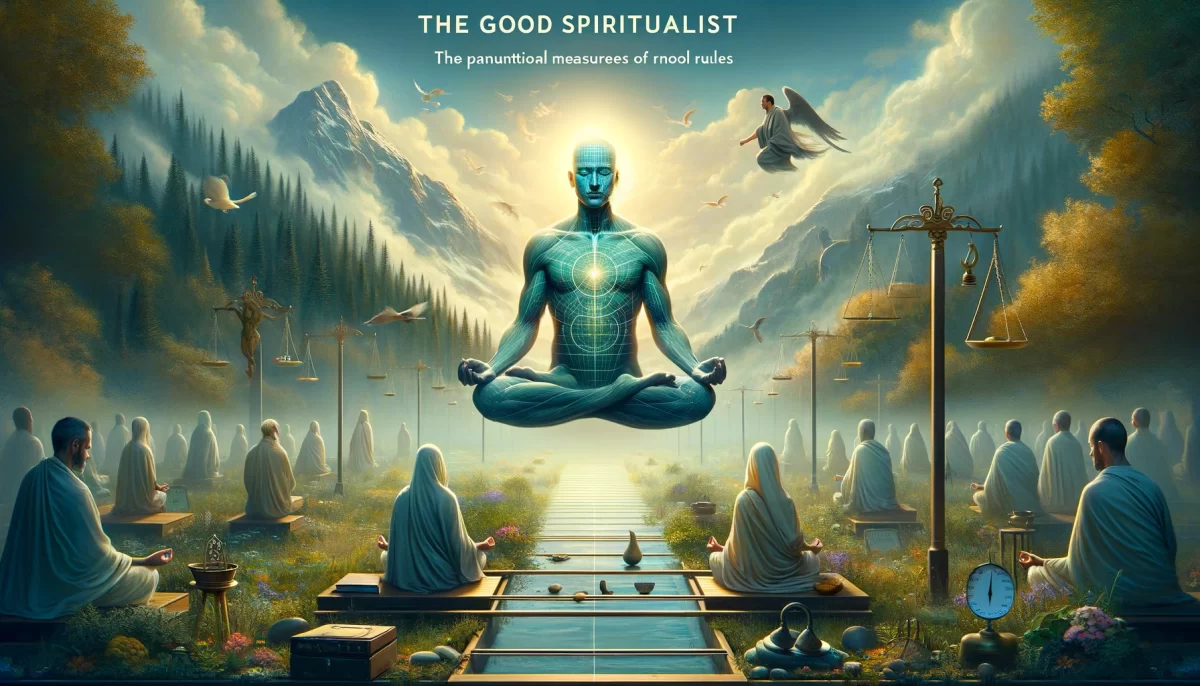
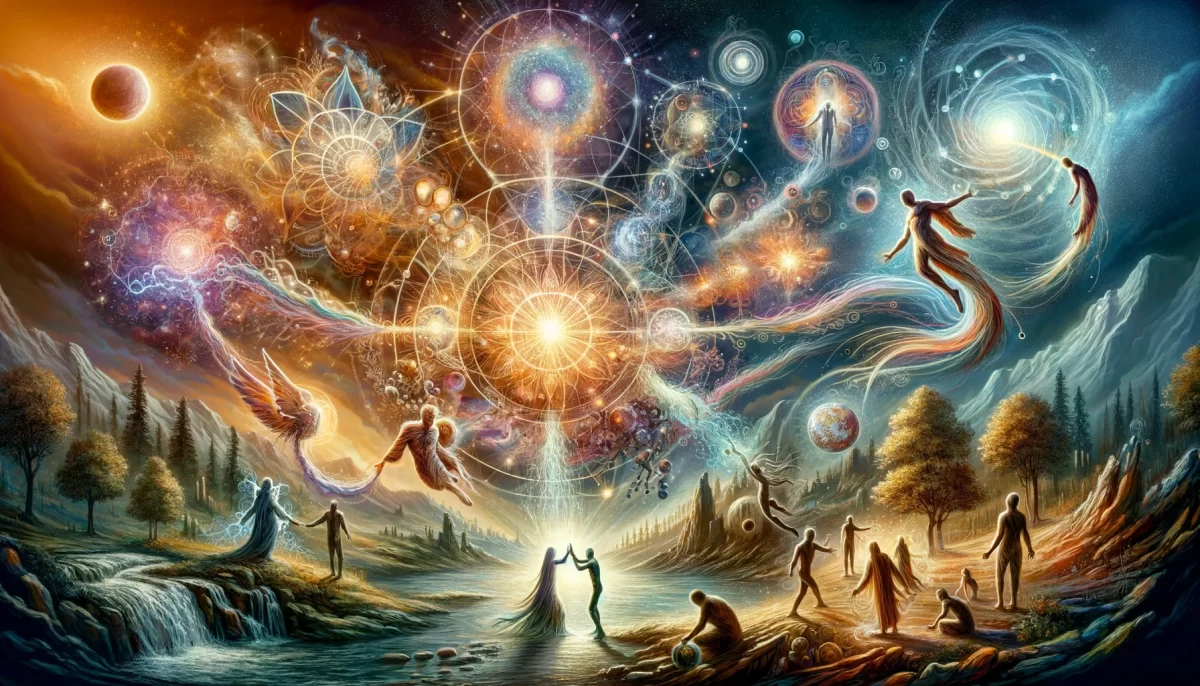


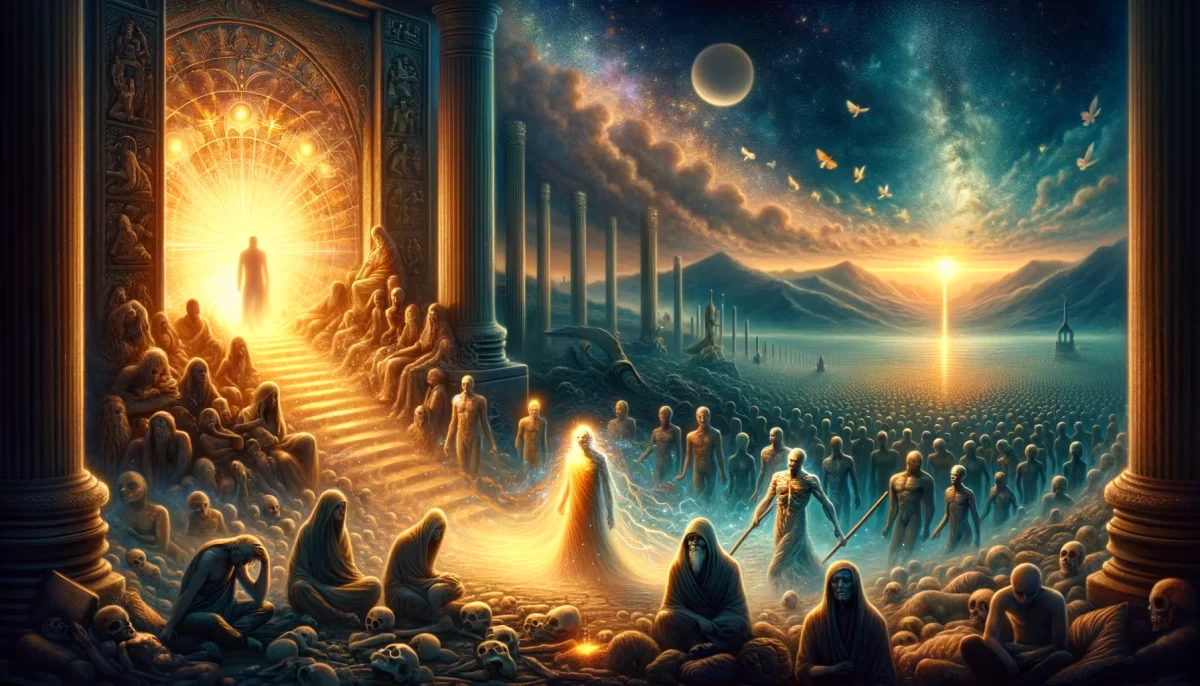


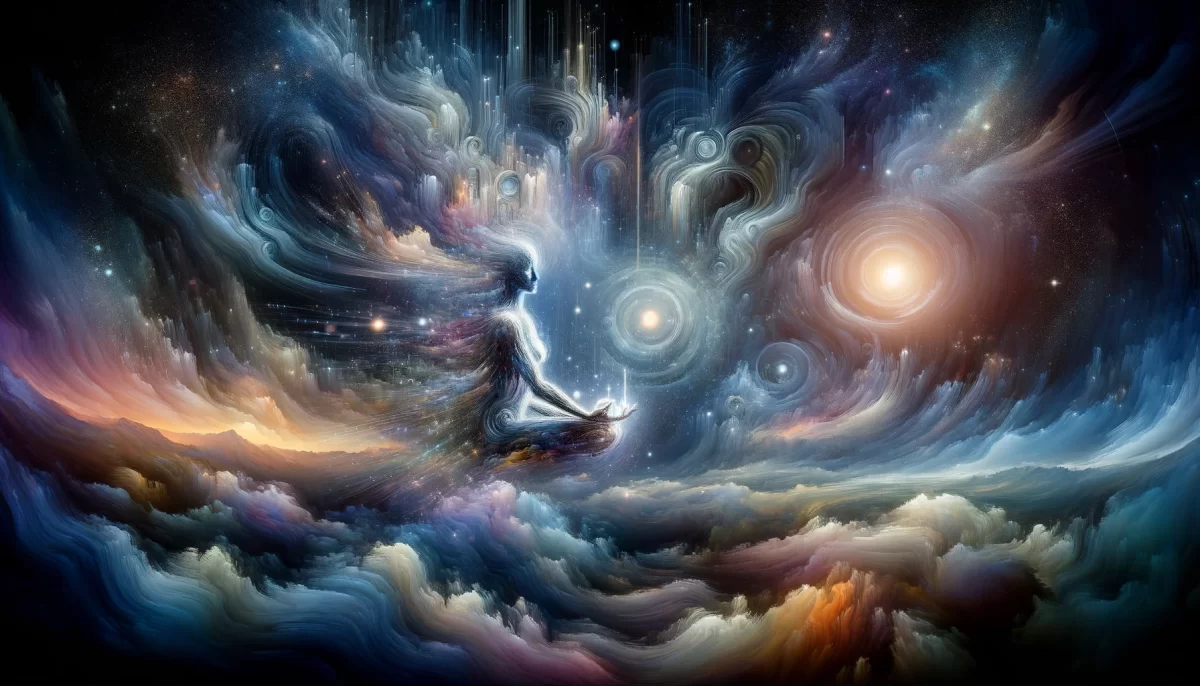
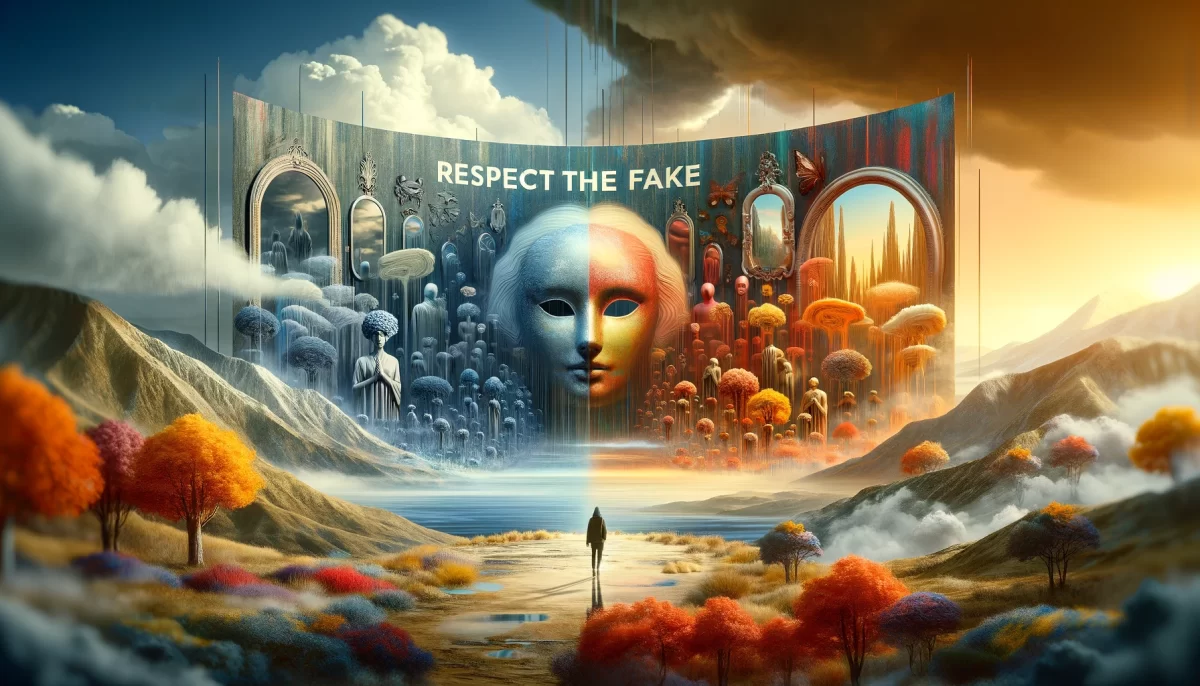
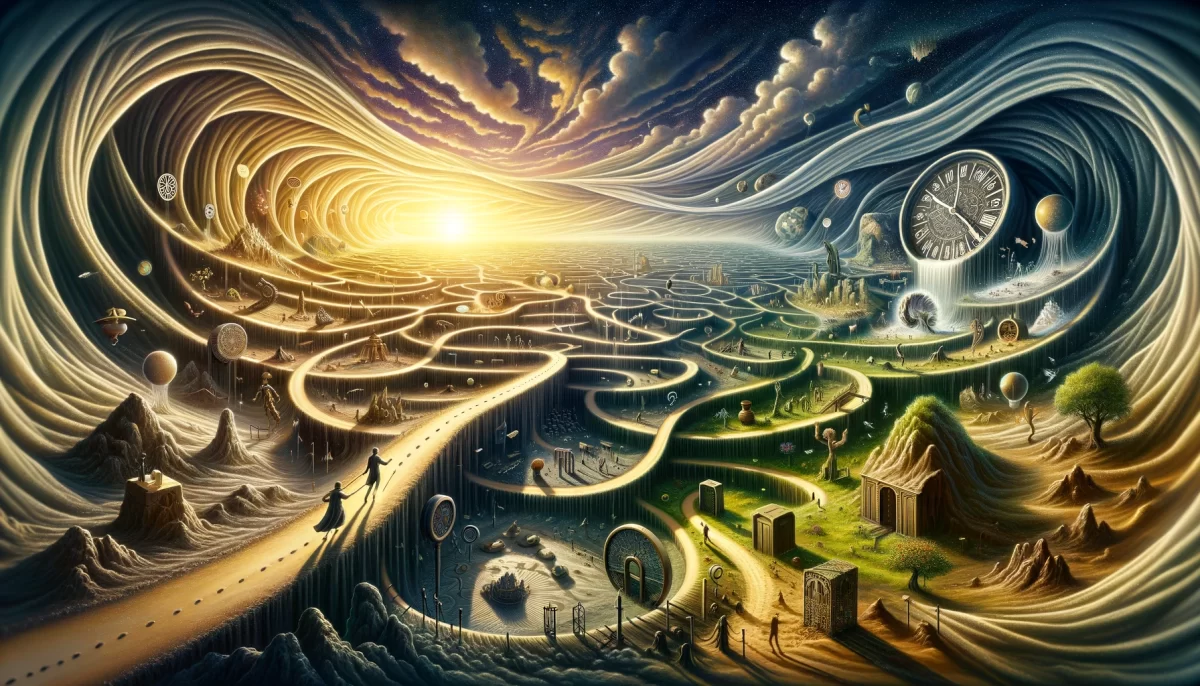

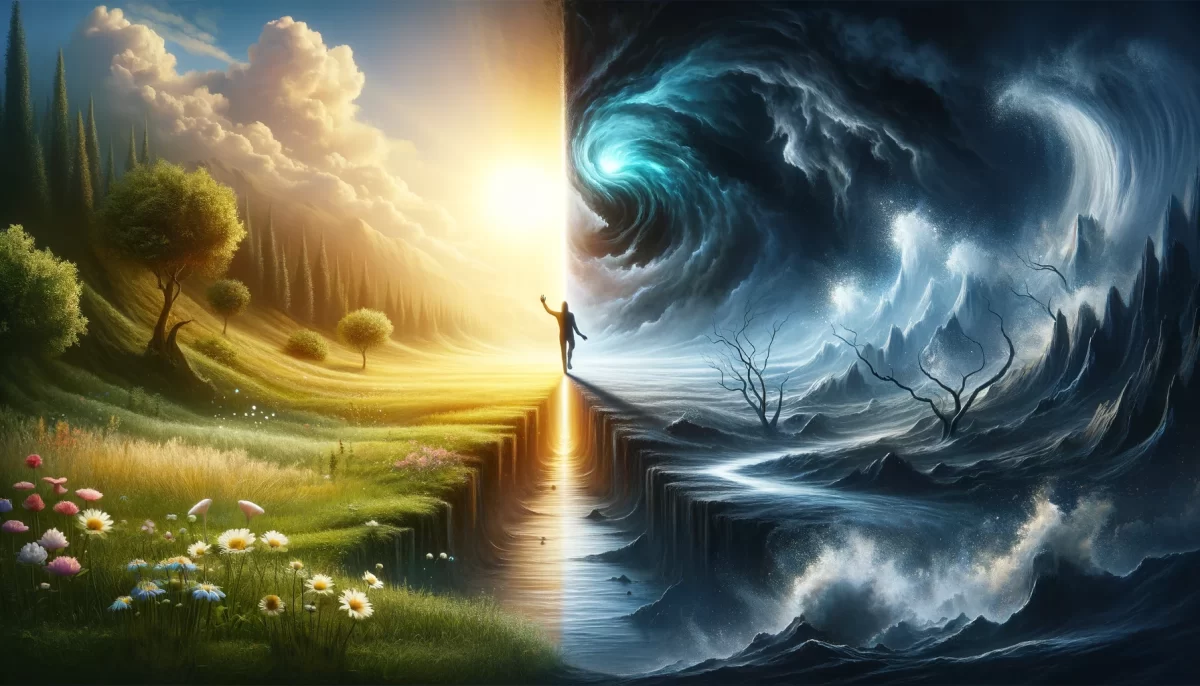
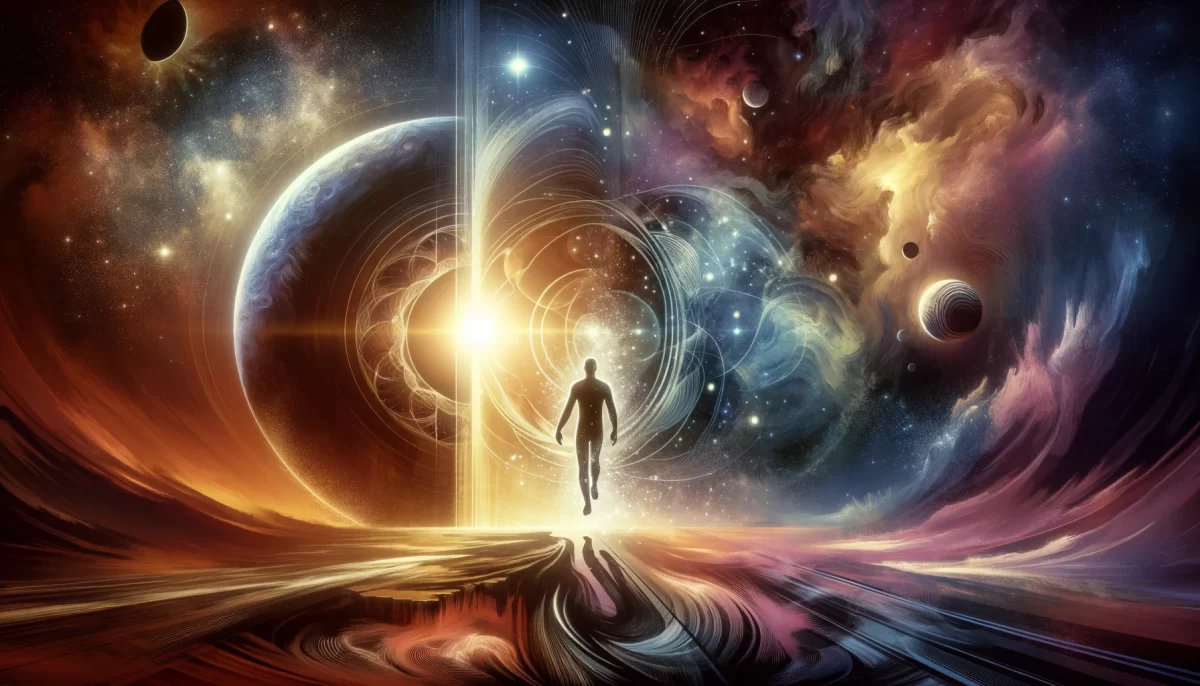
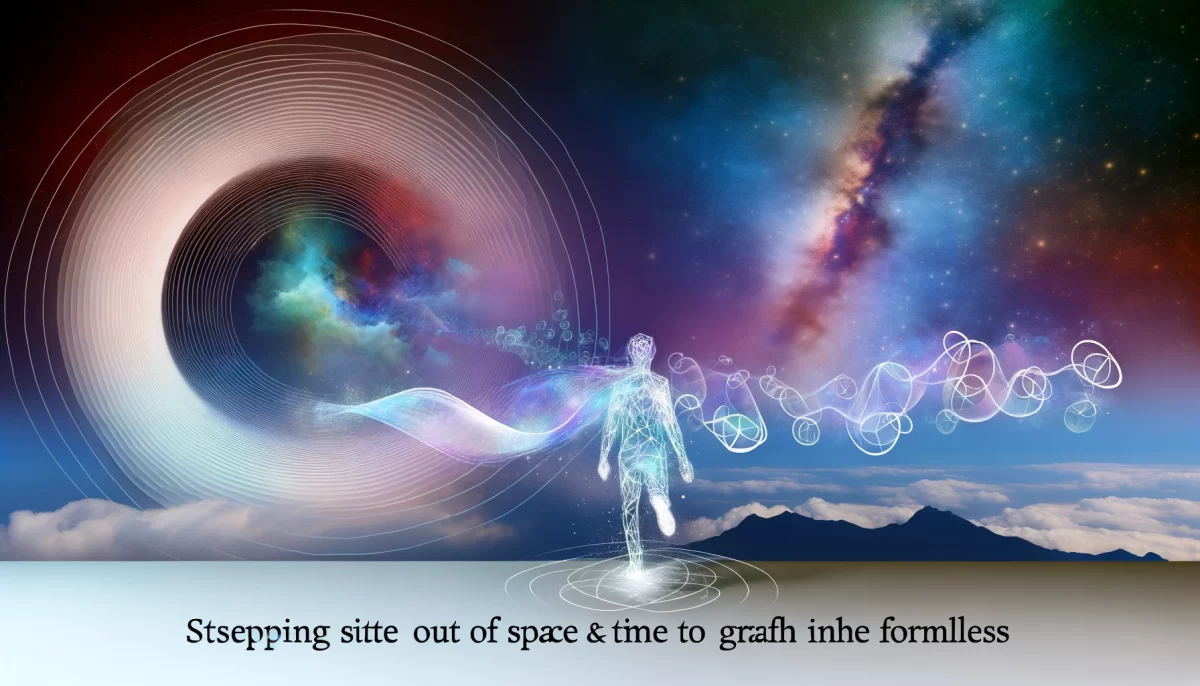
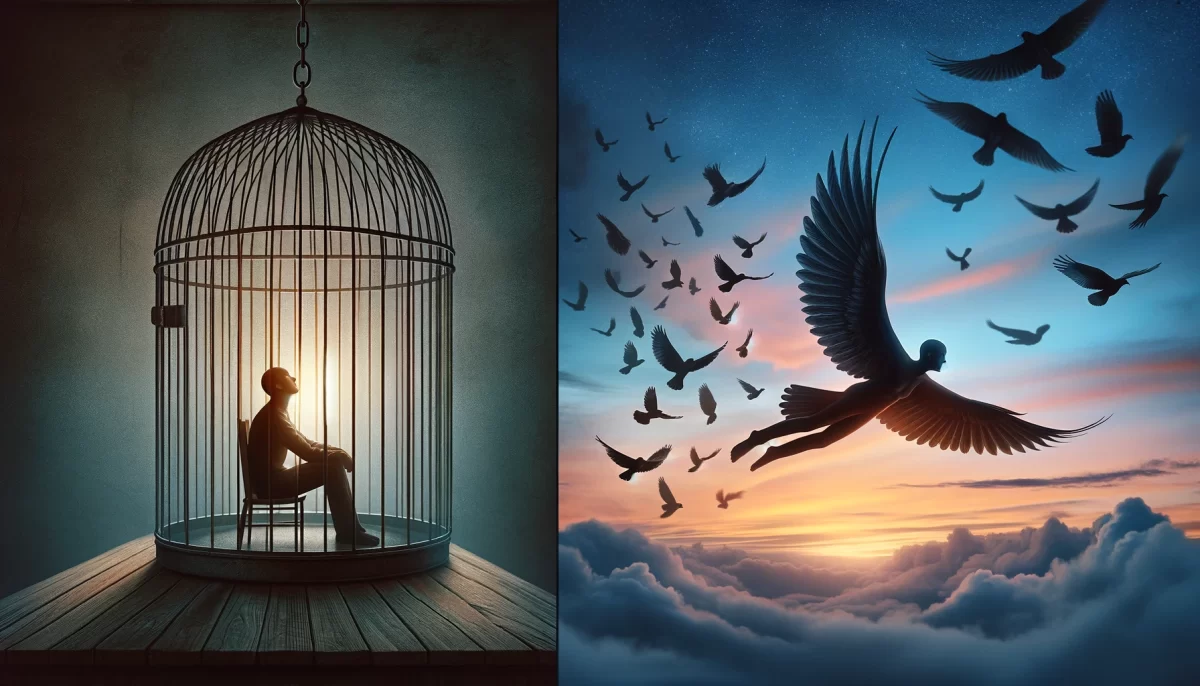
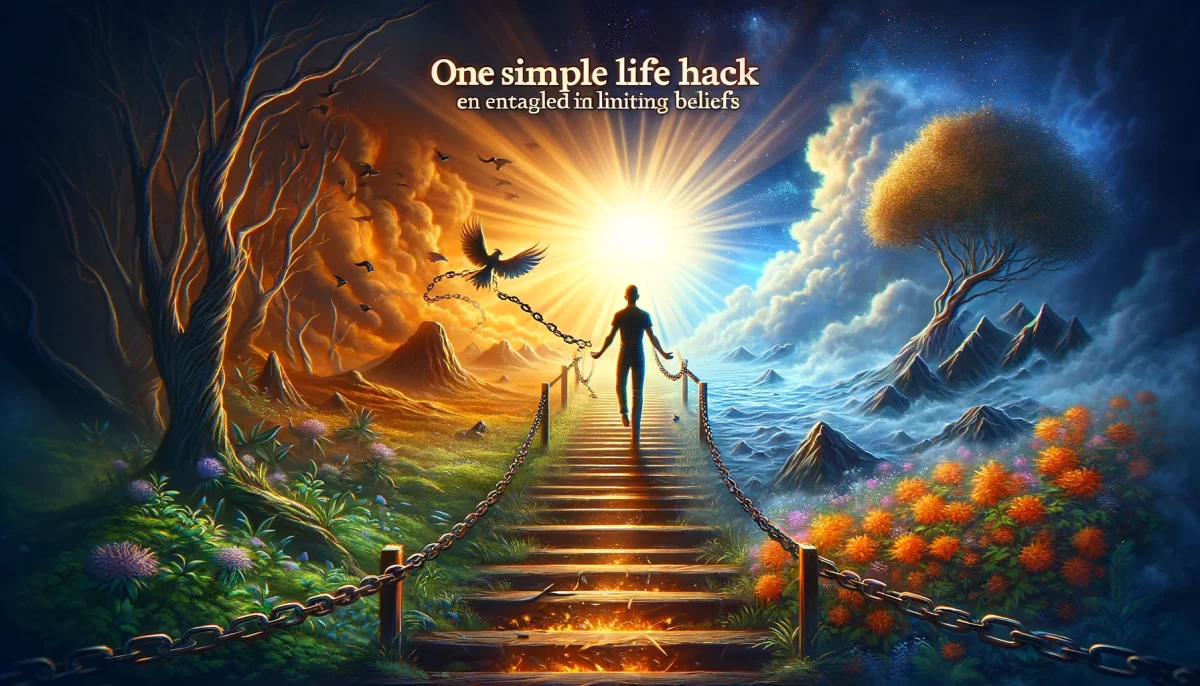
Leave a Reply